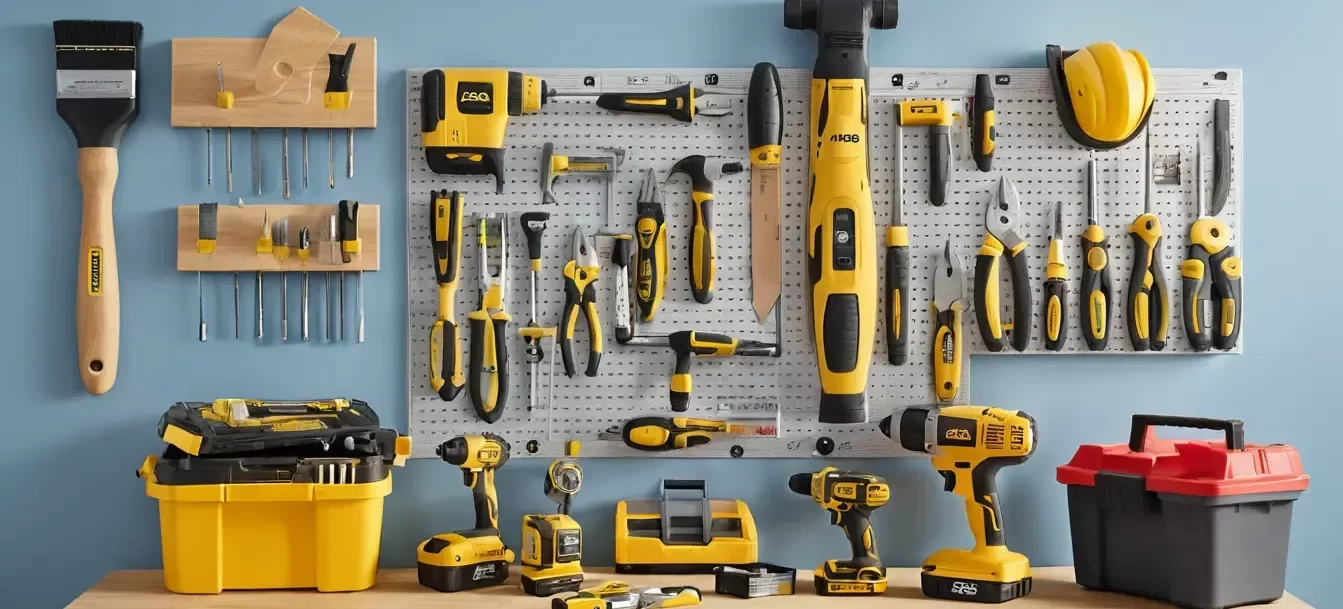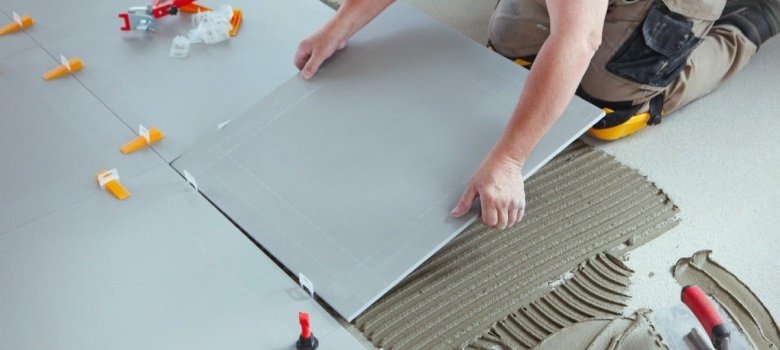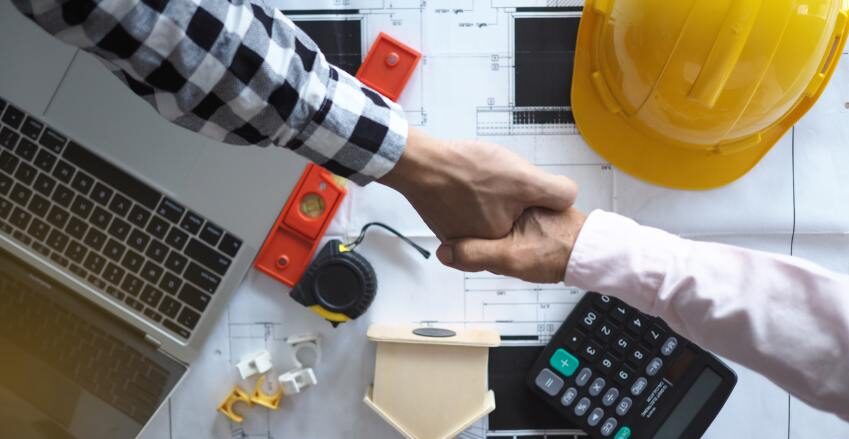Renovating a bathroom can transform one of the most-used spaces in your home, adding both functionality and style. Whether you’re undertaking a small refresh or a complete overhaul, having the right tools is essential to achieving a high-quality, professional-looking finish. This guide will walk you through the essential tools needed for a successful bathroom renovation in Ireland, covering everything from demolition to tiling and plumbing.
1. Planning Your Bathroom Renovation Project
Before you dive into the tool list, take some time to plan your project. Map out what needs to be done, decide on the style and materials, and make a list of specific tasks you’ll need to tackle, such as demolition, plumbing, tiling, and finishing work. Knowing the project’s scope will help you determine which tools are necessary for each phase.
2. Essential Demolition Tools
If your bathroom renovation involves removing existing fixtures, tiles, or even walls, you’ll need a few key demolition tools. Proper demolition tools make removing old materials safer, quicker, and easier, especially when dealing with Irish homes that often have sturdy construction.
- Sledgehammer: A small sledgehammer is ideal for breaking down walls or demolishing old tiles and fixtures. Opt for a 2-3 kg sledgehammer that’s easy to handle but strong enough to tackle tough surfaces.
- Pry Bar: A pry bar helps remove tiles, trim, and moldings without damaging underlying surfaces. It’s essential for delicate demolition work.
- Reciprocating Saw: For cutting through pipes, drywall, and wood, a reciprocating saw (also known as a Sawzall) is incredibly handy. It’s versatile and powerful, making it suitable for various demolition tasks.
- Utility Knife: A utility knife will come in handy for cutting through caulk, drywall, and other soft materials. Keep extra blades on hand for a clean cut every time.
- Safety Gear: Don’t overlook safety equipment such as gloves, safety goggles, and dust masks to protect yourself from dust and debris.
3. Plumbing Tools
Whether you’re replacing fixtures or reworking the entire plumbing layout, having the right plumbing tools will save time and prevent issues down the line. Here are some basics you may need:
- Pipe Wrenches: A set of adjustable pipe wrenches will allow you to tighten or loosen pipe fittings and work with plumbing fixtures. Having two wrenches of different sizes is useful for getting the right grip on various pipes.
- Basin Wrench: This wrench is specifically designed for tightening or loosening nuts in hard-to-reach spaces, such as underneath sinks. It’s a must-have for bathroom plumbing work.
- Plumber’s Tape: Also known as PTFE tape, this tape is essential for sealing threaded pipe joints to prevent leaks. It’s inexpensive but plays a crucial role in ensuring tight, leak-free connections.
- Pipe Cutter: A pipe cutter will give you a clean, straight cut on copper or PVC pipes, making it essential if you’re working on bathroom plumbing installations.
- Plunger and Drain Snake: When working with drains, clogs can be common. Having a plunger and a drain snake handy can help clear up any blockages without chemicals.
4. Electrical Tools
For tasks like installing a new bathroom light, extractor fan, or underfloor heating, you may need some basic electrical tools. In Ireland, it’s essential to remember that electrical work in bathrooms has specific safety requirements, so if you’re unfamiliar with electrical work, consult a qualified electrician.
- Voltage Tester: A voltage tester helps ensure that no current is flowing through wires, keeping you safe while you work.
- Wire Strippers: Wire strippers make it easy to strip insulation from electrical wires, which is essential when connecting new light fixtures or outlets.
- Electrical Tape: Use electrical tape to cover wire connections and secure them in place, ensuring safe and professional installations.
5. Tiling Tools
Tiles are a popular choice for bathrooms due to their water resistance and design flexibility. Proper tiling tools will help you achieve a clean, durable, and beautiful finish.
- Tile Cutter: A manual tile cutter is perfect for cutting tiles to size. For more intricate cuts, a wet tile saw may be a better choice, as it provides greater precision and control.
- Tile Nippers: Tile nippers are small, hand-held tools that allow you to carefully trim tiles, which is especially useful when fitting around pipes or tight corners.
- Notched Trowel: A notched trowel is essential for spreading tile adhesive evenly. Choose a trowel with notches that match the size of your tiles for the best adhesion.
- Tile Spacers: Tile spacers ensure uniform spacing between tiles, which helps create a professional-looking layout and makes grouting easier.
- Grout Float: A grout float is used to apply grout to tile joints evenly and cleanly, helping you achieve a seamless finish.
- Level: A spirit level helps ensure that your tiles are aligned properly, especially on walls. A small or medium-sized level works well for bathroom tiling.
6. Flooring and Wall Preparation Tools
Once demolition is complete, preparing your surfaces for new installations is crucial. This involves ensuring surfaces are level, smooth, and ready for tiles, paint, or other finishes.
- Self-Leveling Compound: Bathrooms require level surfaces, particularly for tiles. A self-leveling compound will help even out any irregularities in the subfloor.
- Trowel: For applying leveling compound or plaster, a trowel is essential. Choose one with a comfortable grip for easy application.
- Sanding Block or Electric Sander: If you’re repainting or installing new fixtures on walls, sanding down surfaces to create a smooth base is crucial.
- Stud Finder: This tool will help you locate studs behind walls, which is helpful when installing heavy fixtures, cabinets, or mirrors.
- Moisture Barrier: A moisture barrier, such as a waterproofing membrane or sealant, is essential for bathroom walls and floors to prevent water damage. Applying a membrane to the subfloor and shower walls can extend the lifespan of your renovation.
7. Finishing Tools
After the main installations are complete, you’ll need a few additional tools to add those final details that make a bathroom renovation look polished and professional.
- Caulk Gun: A caulk gun allows you to apply silicone or caulk around the edges of fixtures and tiles, creating a waterproof seal. This is especially important around bathtubs, sinks, and shower enclosures.
- Paintbrushes and Rollers: For any painted areas in your bathroom, high-quality paintbrushes and rollers will give you a clean, even coat. Choose brushes and rollers specifically designed for bathrooms, as they are better suited to handling moisture-resistant paints.
- Cleaning Supplies: After a renovation, surfaces often need a deep clean. Have sponges, cloths, and a mild cleaning solution ready to remove any dust, grout haze, or adhesive residue.
8. Safety and Essential Protective Gear
Bathrooms can be challenging renovation spaces with sharp tiles, dust, and tools. Make sure to have essential safety gear on hand to keep yourself protected.
- Dust Masks: Protect yourself from dust and other particles by wearing a high-quality dust mask, especially during demolition or tiling work.
- Safety Goggles: Safety goggles are essential for tasks like cutting tiles or using power tools.
- Knee Pads: Tiling and floor installation often require you to kneel for long periods, so a pair of knee pads can help protect your joints and make the work more comfortable.
- Gloves: Work gloves can help protect your hands from sharp edges and chemicals.
Conclusion
Renovating a bathroom in Ireland requires more than just creativity and vision; it requires the right tools to get the job done efficiently and to a high standard. By investing in the right tools, you can tackle each phase of the renovation—from demolition and plumbing to tiling and finishing touches—with confidence and precision. With careful planning and the right equipment, your bathroom renovation will not only look professional but will also last for years to come.
Taking on a bathroom renovation yourself can be challenging, but with the right preparation and tools, you’ll be well on your way to creating a beautiful, functional space that elevates your home. Happy renovating!



